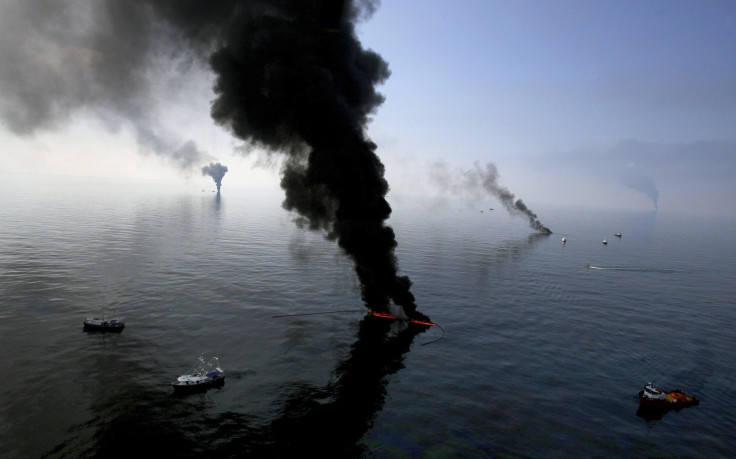BP Oil Spill: British Energy Giant Faces $14B In Clean Water Act Penalties Over 2010 Gulf Of Mexico Oil Spill

Oil giant BP PLC is back on trial in New Orleans over the 2010 Gulf of Mexico oil spill disaster. The latest phase, which begins Tuesday, will determine how many billions of dollars BP should pay for violating the U.S. Clean Water Act and causing the worst offshore spill in American history.
BP faces a maximum fine of nearly $14 billion after U.S. District Judge Carl Barbier put the size of the spill at 3.19 million barrels last week. The federal government had estimated the spill at 4.09 million barrels, an amount that could have led to penalties of up to $17.6 billion.
Barbier in September ruled that BP’s “gross negligence” was to blame for the accident that killed 11 workers on the Deepwater Horizon drilling rig and destroyed fisheries and tourism-related businesses from Florida to Louisiana. Under the ruling, the company could be fined up to $4,300 for each barrel spilled. A simple “negligence” ruling, by contrast, would have limited the maximum fine to $1,100 per barrel.
The British oil firm’s exploration and production unit, known as BPXP, is listed as the defendant in the ongoing trial. The subsidiary says it will try to limit the size of its fines to several billion dollars. “We believe that … BPXP should be subject to a Clean Water Act penalty at the lower end of the statutory range,” Andrew Langan, a lawyer for BP, said in a statement, Reuters reported. The company in December asked the government to lower its civil penalty, citing the steep decline in global oil prices.
U.S. conservation groups are urging Barbier to fine BP the highest amount possible. “The effects of the oil spill are far from over and may not be fully known for years, or even decades, to come,” the National Wildlife Federation and other organizations said in a recent statement. “Now the court has the opportunity and responsibility to make it right, to hold BP fully accountable for the damage done to the Gulf and to assign the maximum penalty to BP for its gross negligence.”
Barbier will base his final decision on a series of eight factors outlined by the Clean Water Act, including the seriousness of BP’s violations, the company’s efforts to minimize environmental damage after the spill, and the economic impact the penalty could have on BP, Bloomberg Businessweek noted.
The company has set aside $3.5 billion to cover these penalties and took a charge of $43 billion to cover all spill costs, according to a July 2014 earnings statement. The final cost is “subject to significant uncertainty,” BP said in the filing. The company has so far shelled out more than $12 billion to cover claims from companies and individuals affected by the disaster.
The third and latest stage of the Clean Water Act case is slated to last three weeks, while post-trial briefs are expected for late April. Its ongoing battle to limit compensation claims will continue indefinitely.
© Copyright IBTimes 2025. All rights reserved.





















